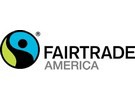Fairtrade America – an independent, third party certification that betters the lives of farmers and workers in developing countries –revealed key highlights from its biennial GlobeScan Fairtrade Consumer Insights report. Study results point to trust and overall favorable perceptions of Fairtrade certified brands and products, as well as increased recognition of the Fairtrade seal.
Conducted among 2,000 US consumers via an online survey, the new GlobeScan research included several notable findings, such as:
- 76% of consumers would view a brand they already buy more favorably if it carried a fairtrade label.
- Half of American consumers trust the Fairtrade label.
- 64% of customers would recommend Fairtrade products to a friend or colleague.
- Price is becoming a less dominant barrier to purchase.
- Visibility of fairtrade labels is highest on coffee products.
- Fair trade preference levels are highest for vegetables.
Recent third-party consumer purchasing data suggests millennial shoppers are key to driving growth and demand for Fairtrade certified goods. Millennial consumers are outspending other generations when it comes to food and beverages, demonstrating a willingness to pay more for items that align with their values. According to IRI, food and beverage sales among millennials were 21.5% higher in March 2019 compared to March 2018. In a competitive landscape where brand loyalty is essential for survival, millennials value transparency – including fair trade and ethical labor practices.
"Beyond taste, quality and price, food and beverage brands can increasingly differentiate themselves by appealing to consumers' ethical concerns, including the very issues that Fairtrade America works to improve," said Bryan Lew, Chief Operating Officer, Fairtrade America. "This data helps us assess our impact and evolve our approach to influencing businesses to certify and shoppers to make ethical purchasing decisions. Ultimately, Fairtrade certified products help secure decent working conditions, fair prices, and better terms of trade that empower small farmers in developing countries to improve their social, environmental and economic stability."
Farming is the single largest employer in the world - two out of every five people farm. However, millions of farmers are going hungry, not earning enough to properly feed either themselves or their families. Their lives are affected by a changing climate, inequality and a lack of an opportunity to seek an education. Everyone engages with the global supply chain when purchasing everyday items, including coffee, fresh produce, chocolate and sugar—all of which begin on a farm, usually in a developing country. Purchasing Fairtrade Certified products means farmers were fairly compensated for their goods and produced them in compliance with Fairtrade America's rigorous standards for certification - the strictest economic, social and environmental criteria of any fair trade certifier.
In the US, Fairtrade America works with 60 brands, and the Fairtrade label appears on more than 5,000 products. Fairtrade America will leverage these statistics to encourage more businesses to certify and promote ethical production practices.
For more information: 
Elaine Dion
Fairtrade America
Tel: +1 415 615 2658
Email: fairtradeamerica@schroderhaus.com
www.fairtradeamerica.org
